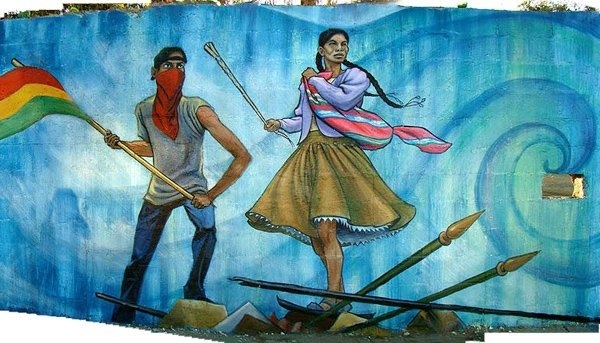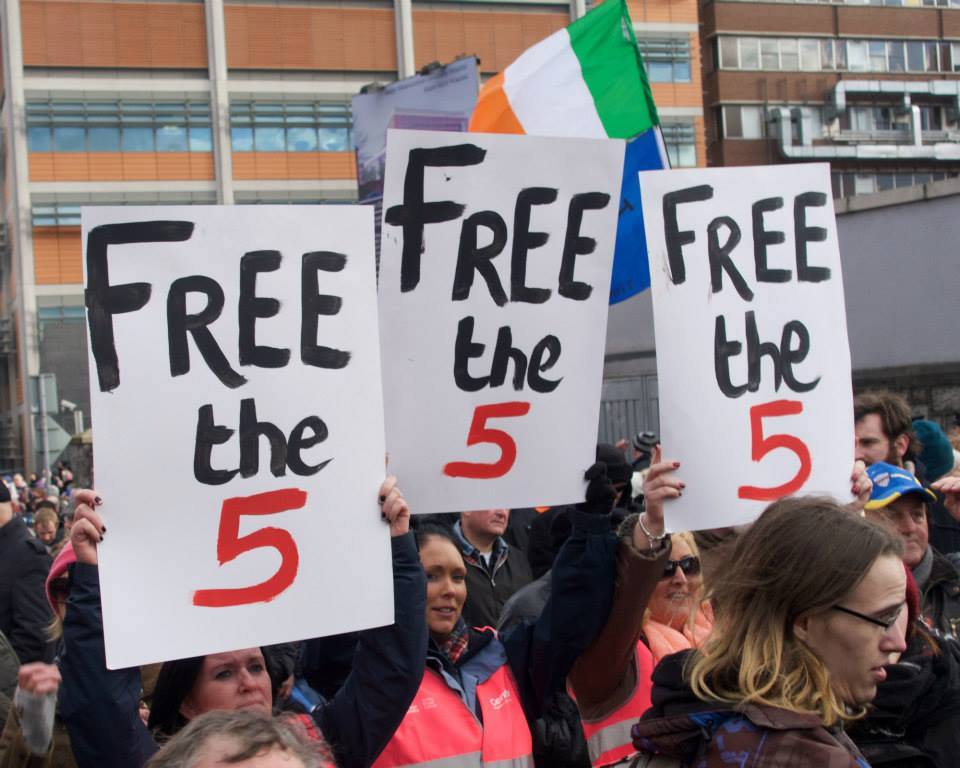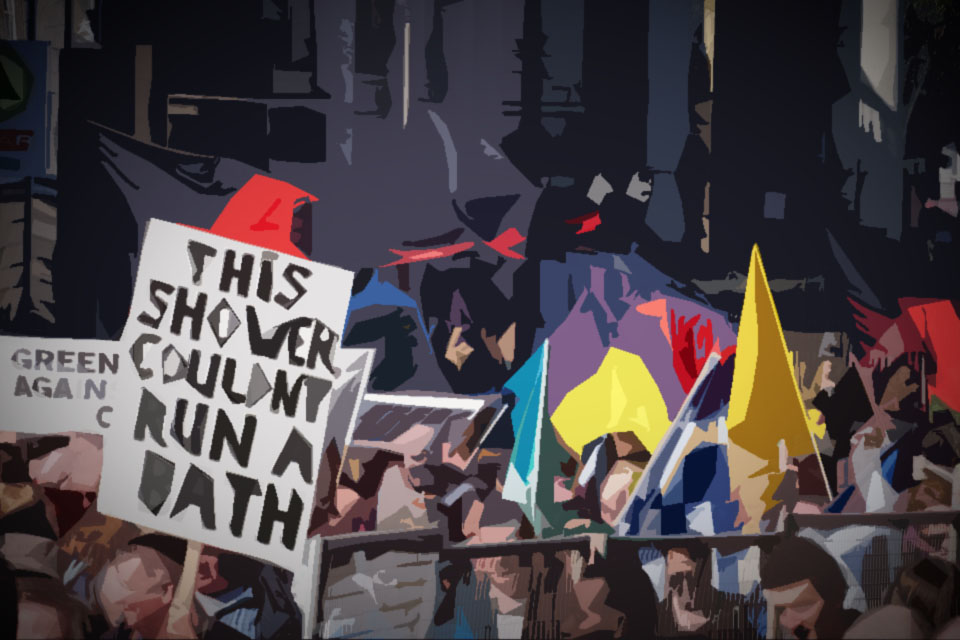Over 30 years of anarchist writing from Ireland listed under hundreds of topics
Magazine
Border Crisis: Migration and Europe.
How to organise a meeting
What Is Anarchism?
Yes Equality? The limitations of the marriage equality referendum victory
From apathy to rebellion: the water war in Ireland.
Brigadistas in Paradise - The Green Brigade and left wing football fan culture

The following is an abridged summary of a qualitative study undertaken as part of the Masters in Community Education, Equality and Social Activism at the National University of Ireland Maynooth. The thesis drew upon theories of culture, subculture, social movements, radical pedagogy, ethnographies and studies of ultras, gender and football research, as well as studies of the Irish immigrant experience in Scotland, and specifically the role of Celtic FC as an expression of Irish identity.
The Green Brigade of Glasgow Celtic Football Club were founded in 2006 as an explicitly anti-sectarian, anti-racist and anti-fascist group of ultras, who would celebrate Irish Republicanism, oppose the commercialisation of football, and act as an alternative to apolitical fans groups who were perceived as being too close to the management of the club.
Creating the Commons: on the meaning of Bolivia’s water wars

‘In the history of humankind every act of destruction meets its response, sooner or later, in an act of creation’ - Eduardo Galeano
In Bolivia, there have been remarkable experiences in urban peripheries, notably in Cochabamba, that reveal the capacity of grassroots associations to construct a free society based on solidarity and mutual aid. The background to the country’s Water War of April 2000 must be understood against preceding waves of struggle, particularly the huge marches for sovereignty and livelihoods of coca growers, Amazonian groups, and others that emerged with the implementation of the neoliberal model in 1985 [1]. Subsequent mine closures and rural migration occasioned huge increases in Bolivia’s urban centres, particularly in Cochabamba, the country’s third largest city. The state water company, Semapa, served only half of the city’s population. In the neglected southern peripheries, neighbourhood groups organised associations to bring water to their homes. Cooperatives, formed without state assistance, dug wells, built water mains, and even created drainage and sewers. In cases where wells could not be dug, the committees bought their own water tankers and organised daily deliveries. By 1990, some 140 urban water committees had formed in the south of Cochabamba, with between 300 and 1000 families in each one [1].
Thinking about Anarchism - Anarchism and the State
 Ever wonder why the Gardaí show up in large numbers when you’re trying to stop water meters in your estate, but haven’t got the resources to come straight out when you think your neighbour’s house is being burgled? If so, you’re thinking about the state.
Ever wonder why the Gardaí show up in large numbers when you’re trying to stop water meters in your estate, but haven’t got the resources to come straight out when you think your neighbour’s house is being burgled? If so, you’re thinking about the state.
Misconceptions & Reality
The most common misconception about anarchism is that it is in favour of ‘chaos’ or some sort of world generally devoid of order and democratic institutions which would leave us at the mercy of predators within our society. Therefore it aims for the destruction of civilisation and democracy itself, which in this view are represented by the state – the guarantor of peace, freedom, and of course, roads.
The Water Revolt: Ireland 2015
 The campaign against the water charges is the most widespread and powerful grassroots movement in recent Irish history. With hundreds of local campaign groups, daily direct actions, and 4 national demonstrations on the order of 50,000-100,000, the cynical refrain that 'the Irish don't protest' has rapidly been replaced by a sense of ubiquitous rebellion. Irish Water is a depraved neoliberal world in effigy, embodying many of the worst problems of our society including the rule of international finance (and private greed in general) at the cost of the vast majority's well being, and the chronic disconnection of the populace from decision making. As such the movement has become a platform for opposition to austerity, the bank bailout, privatisation, the government, party politics, the EU, and more. Thousands of people have experienced a political (re-)awakening. But while it is possible that we will win this battle, and abolish Irish Water, this struggle represents a precious opportunity to make a grassroots offensive after so many years of being beaten down.
The campaign against the water charges is the most widespread and powerful grassroots movement in recent Irish history. With hundreds of local campaign groups, daily direct actions, and 4 national demonstrations on the order of 50,000-100,000, the cynical refrain that 'the Irish don't protest' has rapidly been replaced by a sense of ubiquitous rebellion. Irish Water is a depraved neoliberal world in effigy, embodying many of the worst problems of our society including the rule of international finance (and private greed in general) at the cost of the vast majority's well being, and the chronic disconnection of the populace from decision making. As such the movement has become a platform for opposition to austerity, the bank bailout, privatisation, the government, party politics, the EU, and more. Thousands of people have experienced a political (re-)awakening. But while it is possible that we will win this battle, and abolish Irish Water, this struggle represents a precious opportunity to make a grassroots offensive after so many years of being beaten down.

